

Endocrinologica. Emotability. All About Me Journaling Prompts. Reflection Journals - Center for Community Service Learning. Why Write Things Down? “Every word written is a victory against death.” — Michel Butor Writing things down is a key to effectiveness.
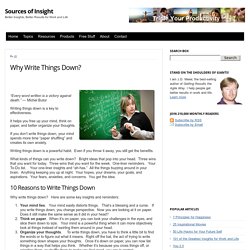
It helps you free up your mind, think on paper, and better organize your thoughts. Journal Writing: A Short Course. Science Shows Something Surprising About Adults Who Still Keep Journals. When we think of diaries, we typically picture moody teens chronicling their social crises and unrequited crushes.

But plenty of people continue to document their daily secrets long after high school — and according to recent science, they may have healthier brains than those who keep that information bottled up. According to neuroscientists and psychologists, keeping personal information inside your head creates a conflict between two brain regions, which in turn leads to reduced cognitive function. The good news: The simple act of writing down those secrets may help undo the harm. In that way, keeping a journal has actual healing powers. Reminders of Connectedness. LSS2005.pdf. Hot to Help. We often emphasize the importance of keeping cool in a crisis.

But sometimes coolness can give way to detachment and apathy. We saw a perfect example of this in the response to Hurricane Katrina, whose devastation was amplified enormously by the lackadaisical response from the agencies charged with managing the emergency. Compassion Definition. What Is Compassion?

Compassion literally means “to suffer together.” Mindfulness-based Mind Fitness Training (MMFT) - Mind fitness, neuroplasticity, and stress resilience. There is a profound parallel between physical fitness and mental fitness.
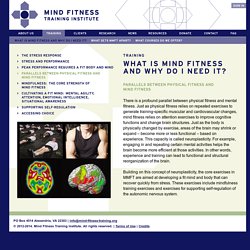
Just as physical fitness relies on repeated exercises to generate training-specific muscular and cardiovascular changes, mind fitness relies on attention exercises to improve cognitive functions and change brain structures. Just as the body is physically changed by exercise, areas of the brain may shrink or expand – become more or less functional – based on experience. This capacity is called neuroplasticity. For example, engaging in and repeating certain mental activities helps the brain become more efficient at those activities. Empathy Museum. Nonacademic Skills Are Key To Success. But What Should We Call Them? : NPR Ed. More and more people in education agree on the importance of learning stuff other than academics.
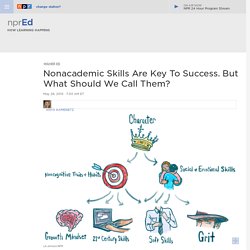
But no one agrees on what to call that "stuff". There are least seven major overlapping terms in play. New ones are being coined all the time.
Sweet Dreams. @ Ack! Somnulus. Memento. Ag @ tsk. Aye Spy July. Soon Joon. May Day! April Phools. Personal Freedom. The Observing Self. Psychotherapy arose in response to human suffering, and, as far as we can tell, human suffering has always existed.
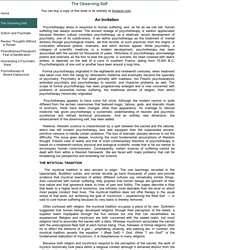
The ancient lineage of psychotherapy is seldom appreciated because Western culture considers psychotherapy as a relatively recent development of psychiatry, one of its subdivisions. Sufism and Psychiatry. Arthur J.
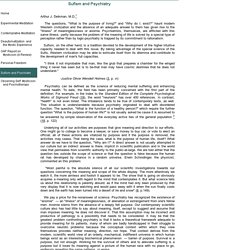
Deikman, M.D.1 The questions, "What is the purpose of living? " and "Why do I. exist? " Inner Relationship Focusing. Inner Relationship Focusing is a psychotherapeutic system and process developed by Ann Weiser Cornell and Barbara McGavin, as a refinement and expansion of the Focusing process discovered and developed by Eugene Gendlin in the late 1960s.[1] Inner Relationship Focusing is a process for emotional healing, and for accessing positive energy and insights for forward movement in one's life.[2] Cornell, while a graduate student in Linguistics at the University of Chicago, met Gendlin in 1972 and learned his technique.
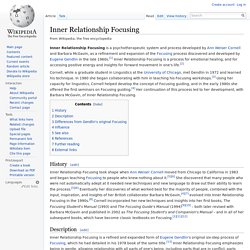
In 1980 she began collaborating with him in teaching his Focusing workshops.[3] Using her capacity for linguistics, Cornell helped develop the concept of Focusing guiding, and in the early 1980s she offered the first seminars on Focusing guiding.[4] Her continuation of this process led to her development, with Barbara McGavin, of Inner Relationship Focusing. History[edit] Description[edit] Differences from Gendlin's original Focusing[edit] Influence[edit] HGI - a rich archive of articles about the human givens, human psychology and behaviour and more... ...to find out more about the very latest thinking in the fields of human psychology and behaviour and, most importantly, how this knowledge is being implemented across a wide range of fields and situations to improve effectiveness and the lives of those involved.

To read general information about a subject, click on a topic on the left, alternatively click on the various categories below to discover more articles, interviews and case histories. • Anxiety, PTSD and trauma • Case Histories • Depression • Dreaming • Education • Ethics • Interviews • Mental health services, the NHS, CBT & psychotherapy • New Insights • Psychosis • Resources and techniques• Research into human givens • Society and culture.
Human Needs: The Human Givens Approach To Physical & Emotional Needs. The principles behind the human givens approach grew out of the work of a group of psychologists and psychotherapists who were trying to bring greater clarity to the way people who become depressed, anxious, traumatised or addicted are helped, as well as making such help more reliably effective (read more). THE HUMAN GIVENS APPROACH is a set of organising ideas that provides a holistic, scientific framework for understanding the way that individuals and society work. Where did the human givens ideas come from? More and more people in the UK and overseas are recognising that the core set of principles incorporated in the human givens approach have enormous, wide-reaching potential — not only for for reducing emotional distress, improving mental health and education, but also for stabilising the human mind, creating harmony in and between communities, bringing order to schools and colleges, and making government and administration more just and effective.
These principles grew out of the work of a group of psychologists and psychotherapists who were trying to bring greater clarity to the way people who become depressed, anxious, traumatised or addicted are helped, as well as making such help more reliably effective. In 1992 they formed the European Therapy Studies Institute (ETSI), whose aim was to discover why some psychotherapy approaches appeared to work and others didn't. Read on: Why is the human givens approach important for psychotherapy?
Why is the human givens approach to psychotherapy important? Human Needs: The Human Givens Approach To Physical & Emotional Needs. Tinnitus: Theory and Management - James Byron Snow. Mas-Herrero_et_al_Curr_Bio2014.pdf. Reticular activating system. History and Etymology[edit] Moruzzi and Magoun first investigated the neural components regulating the brain’s sleep-wake mechanisms in 1949. Physiologists had proposed that some structure deep within the brain controlled mental wakefulness and alertness.[1] It had been thought that wakefulness depended only on the direct reception of afferent (sensory) stimuli at the cerebral cortex.
The direct electrical stimulation of the brain could simulate electrocortical relays. Sub threshold trauma. We have introduced the term 'sub-threshold trauma' here to distinguish between a memory which causes excessive negative emotional arousal (eg anxiety or sadness) when activated by pattern matching to stimuli in the present and a molar memory. When Clocks Go Bad: Neurobehavioural Consequences of Disrupted Circadian Timing. 78.1.full.pdf. Aboulia. Improving Executive Function and its Neurobiological Mechanisms through a Mindfulness-Based Intervention: Advances within the Field of Developmental Neuroscience. 1063. Abstract. Arquivos de Neuro-Psiquiatria - Neuropsychiatry of Parkinson's disease. Neuropsychiatry of Parkinson's disease. Outline of thought. Nature of thought[edit] Confusion, Memory Loss, and Altered Alertness - Preparing For Your Appointment: Healthwise Medical Information on eMedicineHealth.
Taking Charge of Your Health & Wellbeing. How Does Nature Impact Our Wellbeing? Berman, M. G., Jonides, J., & Kaplan, S. (2008). The cognitive benefits of interacting with nature. Psychological Science, 19(12), 1207-1212. Problem-Based Learning Pathway : LECOM. The College of Osteopathic Medicine : LECOM. 1998%20june%20neurobiology%20of%20depression.pdf. Appi.neuropsych. Scotopic sensitivity syndrome. Hypokinesia. Serum Nutritional Biomarkers and Their Associations with Sleep among US Adults in Recent National Surveys.
Clinical analyses of sighted patients with non-24-hour sleep-wake syndrome: a study of 57 consecutively diagnosed cases. Really. Psychosomatica. aHa. Mystic Crystal Revelation. Dealing With Depression: Help On How To Cure It & Natural Remedies. AutoMEQ. Meq.pdf. Itled. MEQ.pdf. Depression May Lead to Disconnect From One's Intuition. Chaya Grossberg, Intuitive Healer. Nutrition For Intuition. 2010BoyerDetectionMadnessPhilPsych.pdf. Positive Disintegration. Analysis paralysis. The Magical Number Seven, Plus or Minus Two. Cognitive inertia. Cognitive restructuring. Confirmation bias. Cognitive dissonance. Eclecticism. EudraVigilance. Iatrogenesis. Paradoxical reaction. Pharmacogenomics. Adverse drug reaction. Idiopathy. Drug Intolerance Due to Nonspecific Adverse Effects Related to Psychiatric Morbidity in Hypertensive Patients.
Idiosyncratic drug reaction. This site is a companion to TestMyBrain.org and covers topics related to psychology, brain science, and individual differences in cognition. Idiosyncrasy.